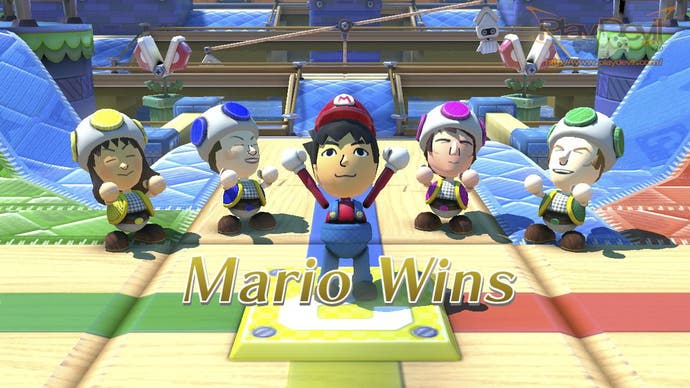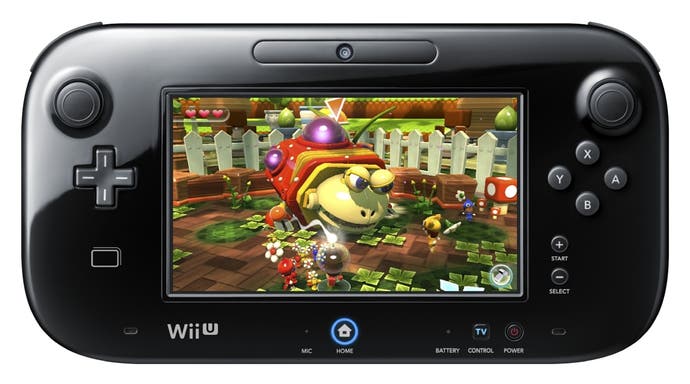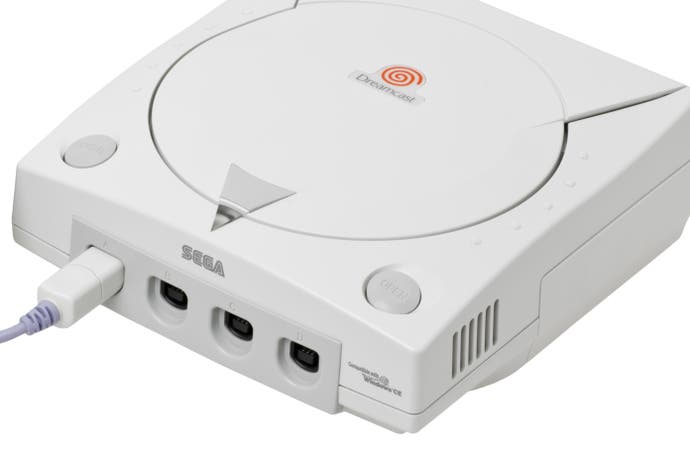Savour the Wii U and Vita - they're our new Dreamcasts
Commercial success may evade them, but these ailing consoles are future classics.
What's your favourite console of all time? There are the obvious candidates - the PlayStation 2 served as the foundation for one of gaming's most fruitful eras, the SNES for its most formative, while the Xbox 360's protracted lifecycle ensures it's built a back catalogue that will be fondly remembered for years to come - as well as some more leftfield contenders.
I'm set on what my own personal preferences are: when it comes to handhelds, I can't think of a finer unit than the Neo Geo Pocket, its micro-switch control stick a perfectly tactile interface for SNK's brilliantly robust games. It's an incredible machine, retaining the sense of luxury that built the Neo Geo name despite the obvious limitations of the 16 colours its 256x256 screen was able to display.
For home consoles it's the Neo Geo Pocket's sometime partner the Dreamcast that's an obvious choice, and no doubt a common one. Sega's last serious piece of hardware saw it hit a brief purple patch as it poured all its resources into a machine ahead of its time, before the company found itself commercially - and, it's sadly easy to argue, creatively - spent. The legend of the Dreamcast was cemented by the likes of Ikaruga, Rez and Shenmue long before it shuffled off this mortal coil, and its legacy is kept keenly alive by fans today.

Yet both the Neo Geo Pocket and Dreamcast were, in their own ways, catastrophic. SNK's handheld wasn't quite the disaster that the Gizmondo was, though the two million units it shifted made it a less popular device than Nokia's ill-fated N-Gage. The fate of the Dreamcast has become a legend in itself, the console's premature departure putting an end to Sega's illustrious run in the hardware game.
Does any of that matter, though? There's a slight pang of sadness when hooking up my old Japanese Dreamcast for a quick run through Border Down and thinking of what could have been, sure, but it's never been enough to dim my affection towards the machine. It never really had much of an impact on my enjoyment of the Dreamcast back in the day, either; as the ground fell from Sega's feet and Sony's PlayStation 2 soon made it irrelevant, I was too busy getting lost in the streets of Yokosuka or pounding through the playgrounds of Rival Schools 2 to ever really care.
It's one of the odd phenomena seemingly exclusive to video game fandom that some people really do care. Sales figures are used as self-validation for those that have picked the most popular side, and there's no shortage of morbid mobs prematurely ringing the death knell for struggling hardware. The strangely partisan behaviour of players who pledge blind allegiance to corporations is a matter for another day, though - what's important is to forget about all that, and embrace some of those commercial failures while they're still around for us to celebrate them.
Identifying the stragglers of the eighth generation, even in its early days, isn't particularly difficult. Of the handhelds, it's the Vita that's limping along, though Sony's at least been smart enough to acknowledge that it's never going to scale the heights of its predecessor, repositioning it as an indispensable accessory for the PlayStation 4 as well as a flexible indie device. It's the most hardcore of offerings, so it's no surprise it's earned a small but vocal group of fans eager to champion its charms.

Finding champions for the Wii U proves a little tougher, though - or at least it's hard to hear them amidst the overriding din of the doomsayers. They're right, of course. The Wii U, presently, is a failure, and a sizeable one at that. Nintendo, like Sega before it, took a gamble in trying to get the jump on a generation, but despite both consoles being quick off the blocks by the time Sony and Microsoft arrived, third-party support had evaporated and the head-start was for nowt.
Even in its darkest hour the Dreamcast was backed by a loyal chorus of supporters, yet the WiI U's patronage has been a little more muted. Perhaps it's because, as was pointed out to me recently, Nintendo's approach to game design is out of step with the current trend, even if its art is as strong as it's ever been. At a time when games are striving hard for high-brow validation, Nintendo's still defiantly and proudly making toys. There's no grand allegory for the human condition on Puffrod Peaks, and no stark peek into the heart of darkness atop Mount Must Dash: there's just peerless craft, and ingenious engineering.
It doesn't help that the Wii U's one of Nintendo's more curious toys too, a machine of half-formed ideas and unfulfilled promise. But, like the Dreamcast before it, it's a unique proposition, and thanks to its less than stellar reception, it'll likely always remain that way. Miiverse remains one of gaming's most open-armed and delightful communities, and while the GamePad may have struggled to justify its existence, the few times it has found its purpose the results have been breathtaking. NintendoLand played at full tilt, with four players pitched against one hoarding that infamous second screen, is an experience that deserves to sit alongside the Dreamcast's Samba de Amigo or Chu Chu Rocket as an eccentric classic for the ages.
There's nobility in failure, and in those half-baked concepts and dead ends of design that blight beleaguered consoles there are so often sparkling ideas truly worth cherishing. The Vita and Wii U might still struggle, but if you're into the business of enjoying games rather than just dry business, it's worth ignoring the headlines, and instead embracing two future cult classics in the making.

